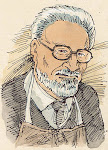… in the Minneapolis Star Tribune notes that the most charitable description of what’s been going on at the clubby University of Minnesota medical school would be “bizarre.”
The Board of Regents has closely followed the work of the external review panel and is aware of OLA’s findings. Chair Beeson and Regent Simmons have already created a plan for the Board to take an active role in shaping the University’s action plan. The Board will provide ongoing implementation oversight through its Audit Committee to ensure transparency and accountability. I look forward to demonstrating to the Regents our commitment to improve. To that end we are taking immediate actions:
Mary Weiss and Markingson’s treatment team sharply disagreed over the state of Markingson’s mental health. Mary Weiss frequently reported to Dr. Olson, Kenney, and Pettit that her son was deteriorating and needed help. Generally, Pettit, the medical team, and group home staff reported Markingson was doing well, at least for the first few months after he came to the group home. In the month before Markingson died, however, more observers reported some decline in his condition. One report found that Markingson appeared very inattentive in his group therapy; he sat smiling to himself. Two days later, Markingson said he had never heard of the Easter holiday even though he said he was raised Catholic. Other observers noted that he looked more disheveled and had a mildly “wilder” look in his eyes but still in contact with reality.
Mar 9, 2004: "You’ve been given observation on truth today, Dan. If someone makes an assumption in asking for a confirmation, such as you’ve seen Friday right? You may recast the question by saying, Have I seen Friday or more generously, if you think the assumption might possibly be all right to make concerning the average person, like you’ve seen Star Wars, right. You may answer the question, then say is it good enough to assume that somebody’s seen it."[Olson 2007 p. 465]
Mar 23, 2004: "world walking, you were at a farm house and we’re getting presents from dogs who had presents fastened in plastic bags to their snouts… in the gloaming and breening, you were thinking of naming it gloaming and greening or gloam-green. That was someone brings a snowslide in summer or midsummer. It has been left behind…" [Olson 2007 p. 467]
Mar 25, 2004: Lawyer, "he says he’s leaving for California as soon as court order expires…" [Olson 2007 p. 471]
In that same Deposition, there were notes from occupational therapy…
Lawyer: "Had you seen any notes in the occupational therapy records that in April of 2004 that said that over time client has become more isolated. He seems to have no interest in interacting with his peers. Personal appearance, disheveled, isolated and withdrawn, poor insight and self awareness. Plan to become an actor in California continues. Delusions seems fixed." [Olson 2007 p. 489]
Lawyer: "During the time you were treating Dan, did you see the Eagan Counseling Clinic notes of March 29th, 2004 stating that he is showing slightly more disorganization and thought and stream of speech and risk to self low with plan." [Olson 2007 p. 485]
3.3.4.1. Criteria for DiscontinuationPatients may be withdrawn from the trial for any of the following reasons:
The primary outcome measure was the proportion of patients who withdrew from the study prior to 52 weeks of treatment [“all- cause pharmacological treatment discontinuation”]. The reason for discontinuation was recorded according to a predetermined algorithm: [1] administrative discontinuation due to an independent external event [e.g., moving with family to another state]; [2] a clinician decision to discontinue treatment because of inadequate therapeutic effect or intolerable side effects whether or not the patient wanted to discontinue; or [3] a patient decision to discontinue although the clinician believed the treatment to be adequately efficacious, tolerable, and safe.
"To the best of my knowledge, we thought Dan was taking his medication and it was being monitored after January and February by the staff at Theo House. And in terms of the deterioration, there was no evidence that came to light either before his suicide or after that he was suffering a psychotic decompensation. The only deterioration that we noted was some deterioration in his grooming and other negative symptoms which are manifestations of schizophrenia that do tend to increase over time, but they’re not amenable to treatment with antipsychotic medications, and there was no indication that he had any return of the behavior being influenced by his delusional thinking. [see Olson 2007 p.451]."
- loosened associations of thought
["in the gloaming and breening, you were thinking of naming it gloaming and greening or gloam-green"] - inappropriate or flattened affect
["he sat smiling to himself"] - autistic thinking – as in a private logic
["You’ve been given observation on truth today, Dan. If someone makes an assumption in asking for a confirmation, such as you’ve seen Friday right?…"] - and ambivalence
["Are you asking me or telling me?"]







